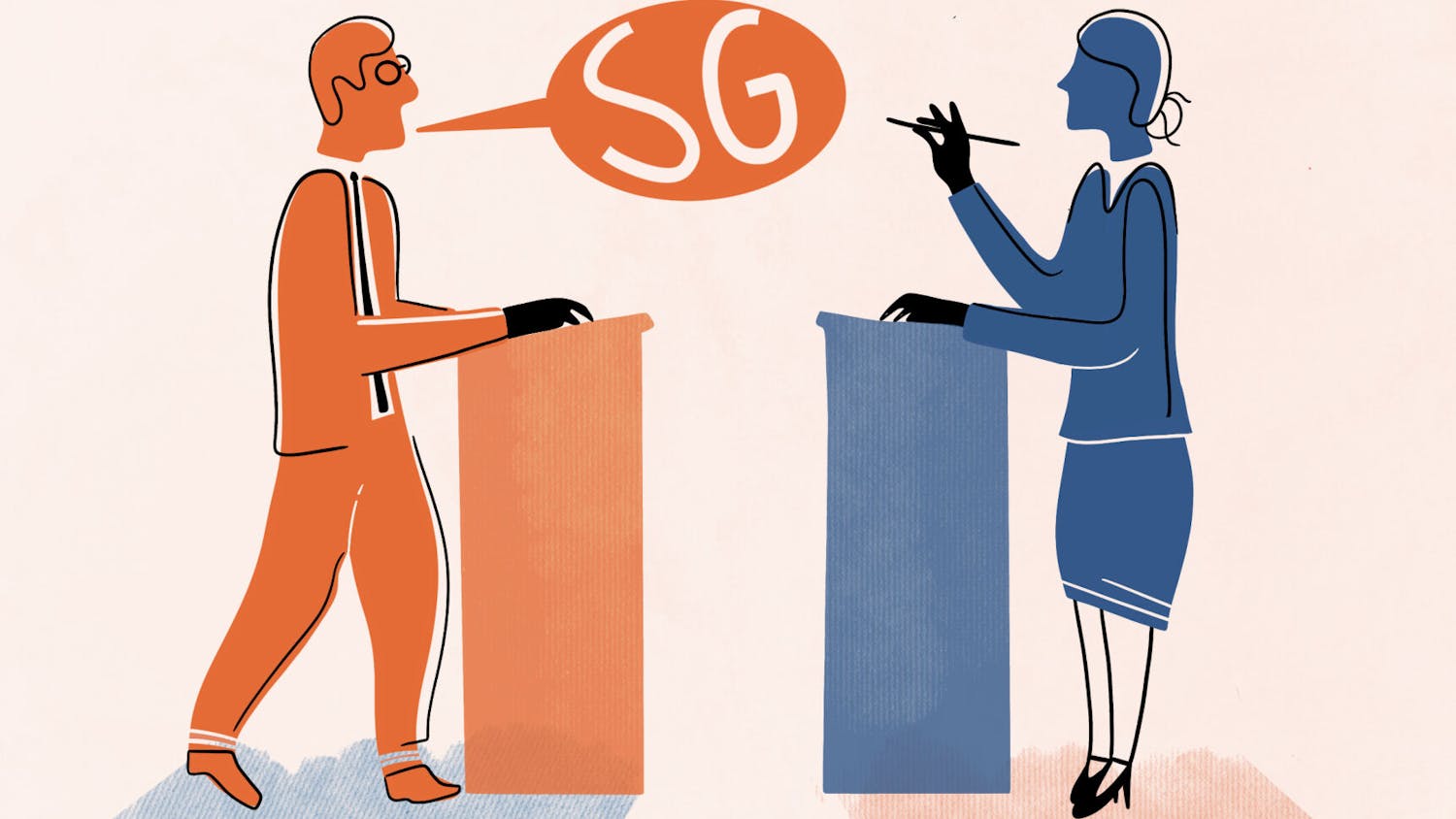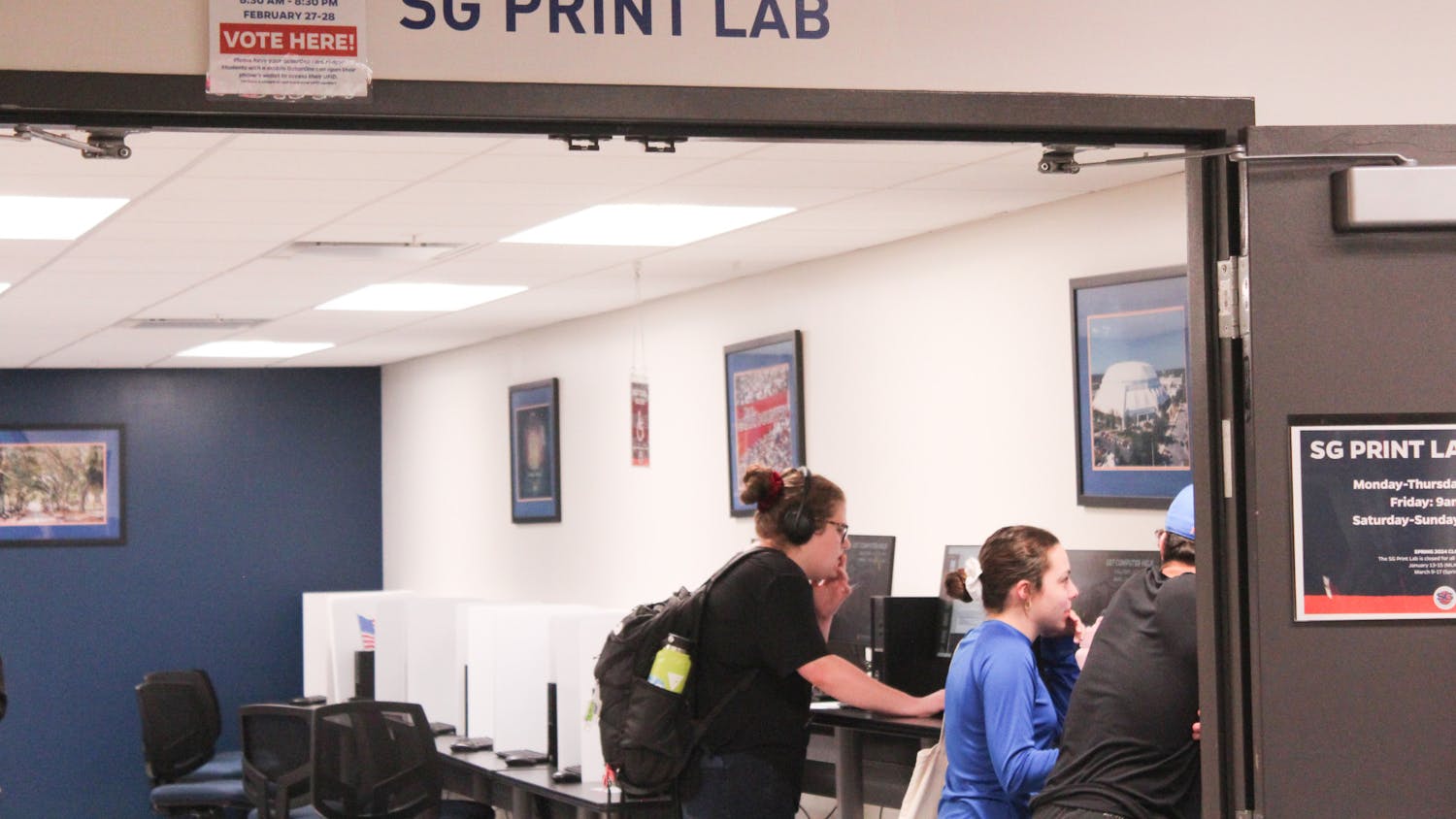The UF Student Senate is set to vote June 11 on the 2024-2025 Student Government budget as well as bills proposing significant changes to Senate speaking rules.
The budget bill, authored by Sen. Damian Rodriguez (Vision-Off Campus), allocates $6 million toward Student Government and $3 million toward Student Engagement, the conglomeration of what used to be Student Activities and Involvement (SAI) and Sorority and Fraternity Life (SFL).
However, Change senators have proposed amendments that propose different options for reallocating $100,000 toward RecSports.
Potential budget changes
The first amendment aims to reduce program funding for Student Government Productions (SGP) by $100,000. The second would reduce SGP funds by $70,000 and ACCENT funds by $30,000. The third proposes reducing Student Government Projects, a budget line of Student Government’s Administrative Account, funding by $30,000 and SGP by $70,000.
Sen. Anjali Natarajan (Change-Engineering) said student funds should not be directed toward events that are "hit or miss at best," and should instead be used for "long-term investments" like increased hours and more equipment at UF RecSports facilities.
She also raised concern about how the funds were being used, referencing an SGP concert where musical artist Nelly performed at the Stephen O'Connell Center which brought controversy due to allegations of sexual assault against Nelly. In response to his performance, the Student Senate passed a unanimous censure against SGP for its involvement with the artist.
Natarajan believes none of the amendments will pass and expressed frustration with the Vision caucus.
"It seems like everyone should be in agreement, there should be bipartisan support for at least one, if not multiple, of these amendments," Natarajan said. “But for some reason moving money in this budget has been like trying to push a boulder up a hill.”
Limiting public comment
The Senate is also set to hold a vote June 11 on parts two and three of Sen. Aaron Rubaii’s (Vision-Off Campus) “Stop the Stall” bill. In a 54-27 vote June 3, the Vision-majority Senate passed the first part of the bill, which changes Senate rules around public comment.
The first volume of the bill reduces public comment, during which students can speak before the Senate, from five to three minutes per speaker. The chamber also passed Rubaii’s amendment to the bill, which bars senators who previously had the ability to sign up to speak, from participating in public comment.
Speaking before the chamber, Rubaii said the new rules will allow the Senate to focus more on passing legislation rather than holding lengthy discussion periods.
“Public comment was out of control in the spring,” he said. “It would not be uncommon for them to go for an hour and a half or longer. When you only have three-and-a-half-hour meetings, that prevents us from doing a lot of stuff that the Senate is supposed to do.”
If passed, the second volume of the bill would limit permanent Senate committees’ presentation of issues to five minutes per meeting. Ad-hoc committees would have a three-minute limit. Previously, Senate rules included no time limits on committee reports.
The third volume would reduce the amount of time senators have to deliver minority reports from unlimited time to five minutes. Minority reports are written by dissenting members of a committee when they disagree with the official report the committee produces.
“We are often unable to get through the agenda within the three-and-a-half-hour period in which we have our meeting,” wrote Vision Caucus Majority Leader Sen. Julia Seifer (Vision-Off Campus) in a statement to The Alligator.
The Reitz Union, where the Senate Chamber is located, closes at 11 p.m. during the school year. Senate meetings begin around 7 to 7:30 p.m.
Seifer said she hopes the bill’s passage will lead to “increased productivity in the Senate Chamber” and “in-depth discussion and debate on agenda items.”
“By ensuring that public comment is exclusively reserved for our constituents…[the bill] promotes student perspectives so we can more effectively perform our jobs as representatives while simultaneously allowing us the time to accomplish the changes [students] hope to see,” Sen. Seifer said.
Sen. Isha Khan (Change-Honors Village), however, said she is opposed to the bill because public comment is one of the few ways in which senators can address all members of their caucus and the other caucus at once, especially since there is currently no Senate channel on Slack, GroupMe or any other communication platform.
“The only way I can address people that may be part of Vision caucus is here,” she said.
Sen. Anamika Naidu (Change-Beaty Towers) said the bills restrict the ability of the minority caucus to express itself and advocate for its constituents.
“When we have minority of the Senate, it really does feel like an attack on our rights because sometimes [minority reports are] the only way we can address the chamber,” Naidu said.
She also questioned whether five minutes would be sufficient time to report on committee findings.
“I have sat as a voting member of committees that have gone on for six hours or more,” she said. “How could you possibly sum that up in five minutes?”
Contact Avery Parker at aparker@alligator.org. Follow him on X @AveryParke98398.
Avery Parker is an English and history senior and the Summer 2025 University Editor. When he's not buried in thesis research, he enjoys exploring rivers and listening to The Wrecks.






